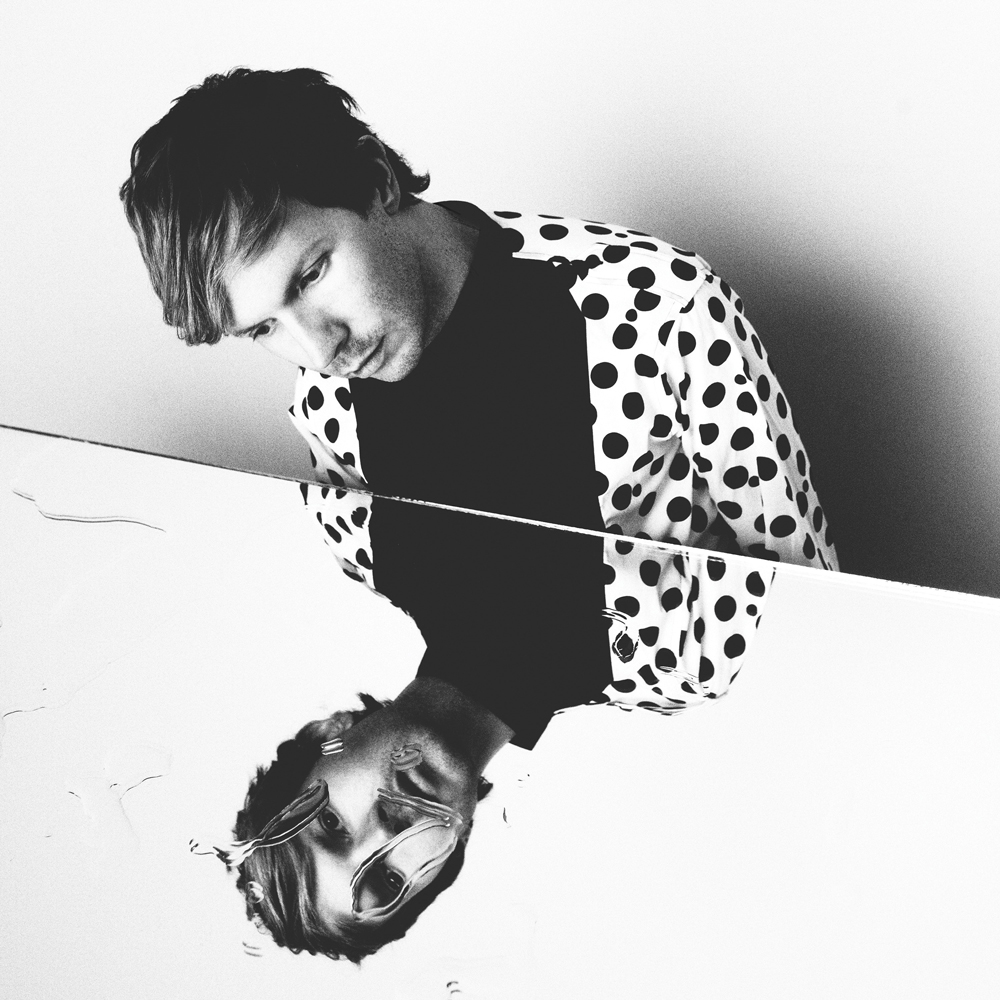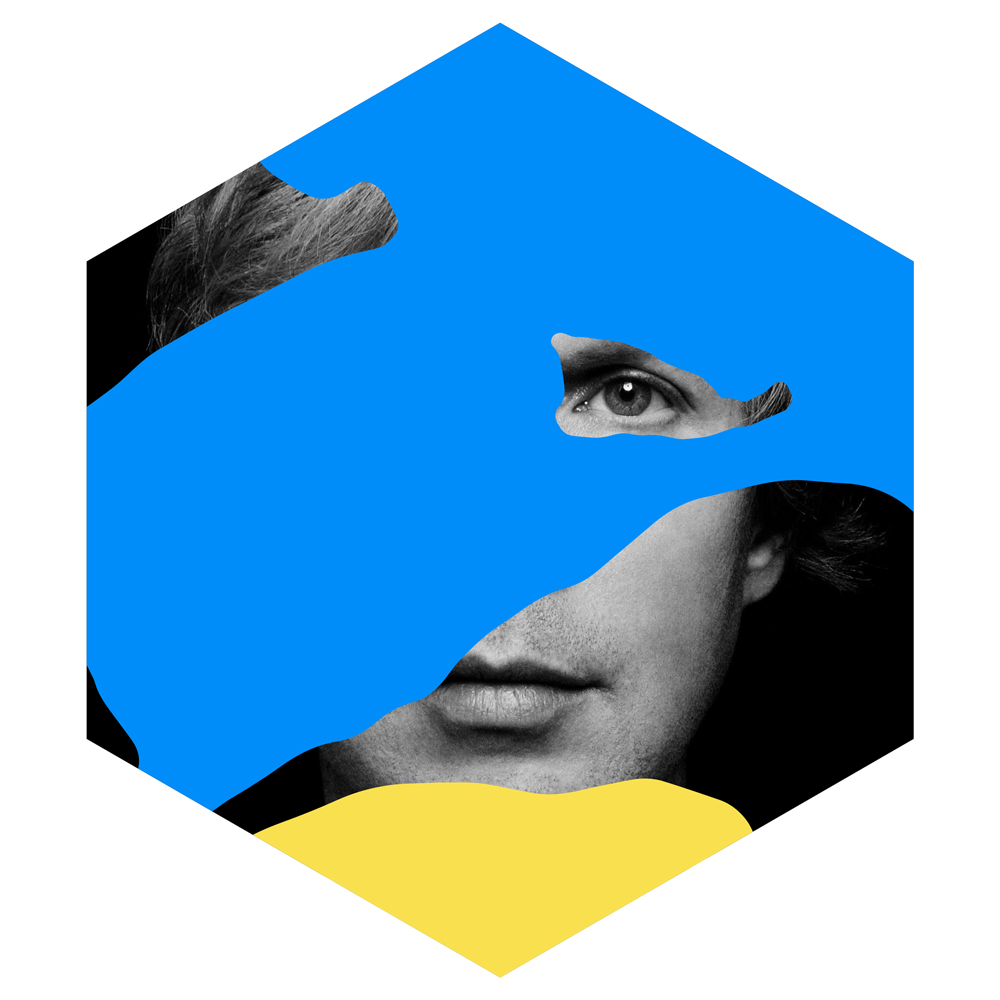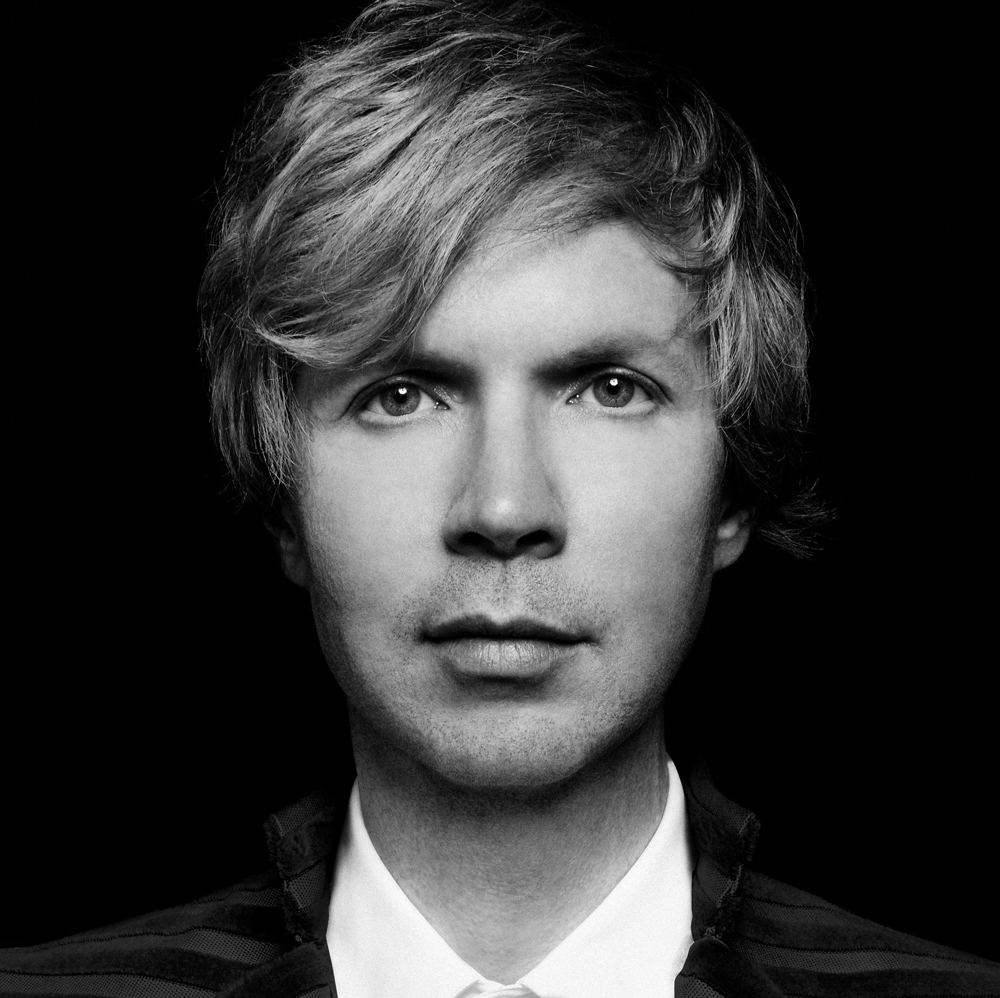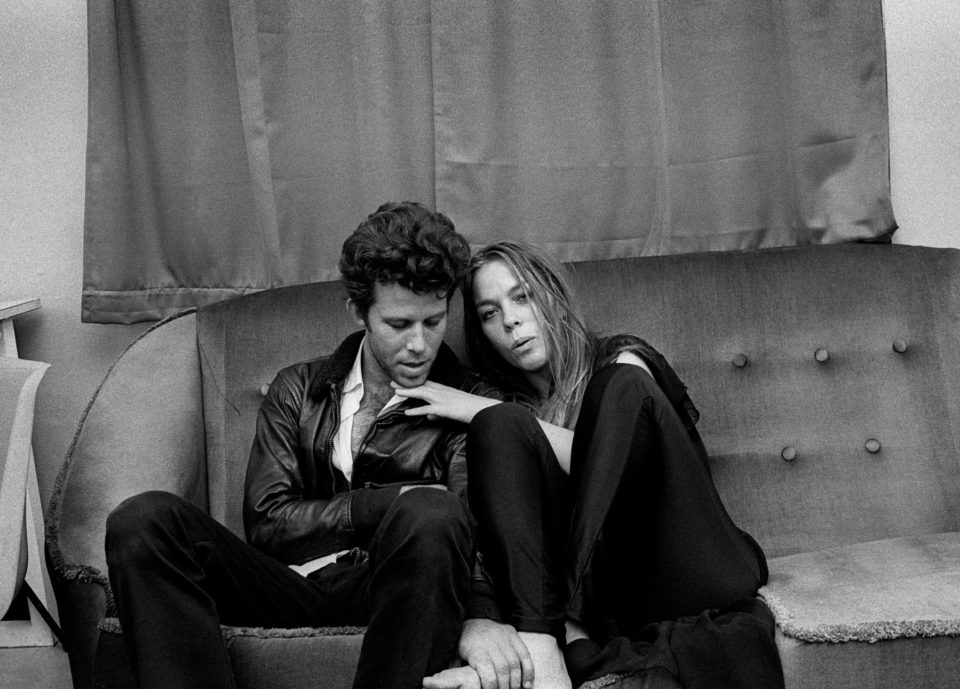Beck knows the exact moment I’m talking about. A New Year’s Eve party on Bondi Beach in 1998. Everyone arrived expecting to see the slacker generation cowboy throwing down the grunge meets hip-hop collages that had put him in the heroic company of Sonic Youth and The Beastie Boys; that lanky young dude with a ghetto blaster on his shoulder who’d signalled our changing times with songs like ‘Loser’, ‘Beercan’, ‘Devil’s Haircut’ and ‘Jack- Ass’. Instead, what they got was this dandy in a white suit who moved and sounded like he’d just swallowed a Prince pill.
“I think we’d taken on our role as New Year’s Eve party entertainers a little too seriously that night,” Beck says now. You can almost hear him laughing to himself.
With Colors, his 13th album, Beck has well-and-truly confirmed his place as one of contemporary music’s great shape-shifters. If he was already fast-moving as a late 20th century musical boy wonder, that New Year’s Eve in Sydney showed Beck could change so quick he’d leave his times and possibly his audience behind.
The night, of course, previewed the funky new direction he’d be taking with Midnite Vultures (1999). But on top of the muted Mutations (1998) – a transitional indie rock ‘n’ folk mashup that faded out of the blinding start he’d made with Mellow Gold (1994) and Odelay (1996) – Midnite Vultures implied an artist derailed by their own intelligence, prone to dabbling in, as much as transforming influences. That said it also featured the greatest Prince song Prince never wrote in ‘Debra’: “I got to get with you, and you know what we’re going to do. I got to get with you – and your sister, I think her name’s Debra.”

Beck. Photography by Peter Hapak
His latest album
2014’s Morning Phase was a happy-sad album whose lingering melodic warmth might just as easily have seen it titled Mourning Phase. Built out of American West Coast ambiences that conjured up sunlight-on-the-Pacific and internal depression, Morning Phase would net Beck a Grammy in 2014 for ‘Album of the Year’. Some argued it finally gave us a Beck in true emotional form, free of excessive conceptual toying. A faint tint of Neil Young’s Harvest clung to the overall sound. It was an album to live with – and love.
All of which zig-zags us back to the 47-year-old Beck right now and his need to keep changing gear from record to record. He confirms such changes are very conscious, then he checks himself. “Actually sometimes it’s not so intentional,” he says, a little amused. “I go in with certain intentions and it comes out completely differently.”
That noted, “Colors is fairly close to what I intended. I wanted to make a tribute – like those greatest hits albums you could get [back when I was a kid] – to my love of pop music. A songbook of songs like what I’ve heard on the radio and loved. The Clash, Nirvana, Justin Timberlake, Prince, White Stripes… it’s about a love for their great songs and sounds.”
For Beck, this is not just a matter of hero worship or the detached post-modern pastiches he is sometimes accused of making. He had been thinking for a while of a need to return to “artists who remind you of the beauty of being alive,” he says. “Great music can create some great perspective shift. Like a sudden stunning view. Or a moment out with friends when you’re all laughing.” Beck pauses for a while then adds, “Where life opens up and everything is bigger and brighter. I’m not saying all pop music has to be like that. But I thought a lot about it for me.”
Married to the actress Marissa Ribissi, Beck and his wife have a son Cosimo (13) and a daughter Tuesday (10). Raised as a Scientologist by his parents he does not usually discuss his religion but it’s obvious family is a strong feature in his life. His father David Campbell is a composer-arranger who has worked with everyone from Carole King to Radiohead and Beck himself; his mother Bibbe Hansen, an actress and performance artist, was part of the Warhol set; his grandfather Al Hansen was a leading light in the interdisciplinary Fluxus pop art movement, studying with John Cage and befriending Yoko Ono. Despite such royal bohemian lineage Beck’s upbringing was economically modest, the child of struggling artists. What it most certainly gifted him with was an alertness to history, theory and experimentation.
When I suggest Colors is a darker album that his buoyant mission might suggest – that it seems to be about suppressing shadows by emitting light – Beck deflects rather than rejects. “A little bit round the edges, yeah. I tried hard to make them [the songs] happy and fun. Not completely that way, but mostly that way. I aspire to that… to offering people that someday,” he says almost apologetically. “I aspire to that pure joy you hear in songs by Paul McCartney or Stevie Wonder. Those songs of theirs that are so uplifting.”
Then he laughs again. “’My Cherie Amour’, how do you write a song like that?! Or ‘Don’t You Worry About a Thing’? Joy can be the toughest thing [to capture in song] for sure.” McCartney and Wonder, Beck says, “are the two masters of that joy, the greatest almost in the entire genre of pop.” He thinks that’s because “it’s something natural in their sound”.
Colors took him almost four years to create. Beck estimates he recorded something like three to four albums worth of material. “Then I just took all the best songs we’d done and made one album. I was thinking about Thriller, Purple Rain, Peter Gabriel’s So… where every song is a high point. Which is kind of impossible to do.”
In the early stages, “I was working with Pharrell. Then ‘Get Lucky’ took off, so understandably he was swept off in a wave of music.” Beck’s former band member Greg Kurstin ended up playing all the instruments and co-producing with him. Since leaving Beck’s group Kurstin has had a startling career as one of the era’s great writer-producers, guiding albums by Sia, Adele, Kelly Clarkson and Foo Fighters to the top of the charts. Which only makes Colors all the more curious: gem-packed and marvellous, yet caught up in the paradox of great craftsmanship seeking out effortlessness.
For me the song ‘No Distraction’, appealed almost because of its derivativeness, and with it an immediate and recognisable ease. Beck’s surprised I choose it as a favourite and admits it was the last song they recorded. Done in a day. “Maybe by the end we were getting the hang of it, and finding the sound and character of what it [the album] should be. I just knew when I started that I did not want to do Odelay Part 2 or another Sea Change, or anything I already knew how to navigate. I had the idea for Colors – but how to manifest it took quite a bit of time.”
“With ‘No Distraction’… usually I’d rewrite the song. But we just put it out exactly as we did it. I did say to the producer [Greg Kurstin] ‘It sounds a bit like the Police.’ And he said, ‘Yeah, but I just like it!’ Maybe it would have been a better song if we did rework it…”
“It’s interesting. That sound, it’s just part of the language of pop music. Like when Dylan sounded like Woody Guthrie. It’s just a way of re-planting the seed. If kids gravitate to The Police because of that song and then take whatever idea was in The Police it continues to live on.
“I used to be very particular about not sounding like anybody else when I was young. Some people refer to that kind of thing as ‘the anxiety of influence’. After a while, you know, you see we’re part of a continuum here. Country and r’n’b goes into rockabilly, then rock ‘n’ roll. There’s a lot of great songs that reflect that.”
Beck explains he has “playfully pointed that out” in the past “by putting a country steel guitar or banjo on a rap song.”
“I’ll tell you something else… if you listen to ‘Every Little Thing Is Magic’ and ‘Little Red Corvette’ they’re the same song structure and the same chords. I was playing along to The Police when I noticed it. ‘Little Red Corvette’ must have come out ten months after ‘Every Little Thing Is Magic’. It just makes me think the message isn’t really as important as the human communication. It doesn’t matter that ‘Little Red Corvette’ is like ‘Every Little Thing Is Magic’. You just think about the voice of Prince and where he is taking you, the humanity and the inventiveness he brings. That kind of thing interests me.”
“You know, too,’ Beck confides, “sometimes I’ve done things where I’ve intentionally tried to copy something. Then I’ve played it to friends who just don’t hear it at all.” At that he really laughs.
Ever the musical explorer he observes that “every kid in this generation is listening to trap music now. Kids growing up will evolve that into something else. But it won’t be trap music.”

Beck ‘Colors’ Album Cover
Again and again, one returns to Beck’s interest in music as a material form. He discusses his “interest in surfaces” and “the way we do construct these surfaces in our culture. They’re convenient, they’re a shorthand for many things, and certain artists can thrive by embracing that. For other artists, it’s something we’re trying to escape. I’ve liked to show a little of those surfaces because sometimes it can be a way to tune out of what is going on. There can be a little bit of going through the motions. You can see this happening not just in music, but in film and even politics.
“I like to show the construct of it, to show and aspect of it, the artifice. To create a reminder there is a human communication underneath.”
At moments like these Beck sounds more like the playwright Bertolt Brecht than an aspiring Paul McCartney. But the textural reveal Beck alludes to in the way he constructs songs is also as much about hiding things as well. Despite their “elliptical” and jigsaw nature, he emphasises his lyrics are “very considered”. He usually writes much more before erasing the more personal or overt material. “People sometimes think I’ve just kind of thrown them down but that’s not true at all.” That process is visible in a song like ‘I’m So Free’, which deals with the issue of digital addiction, a time when he saw ‘the silhouette of everything I ever knew turning into voodoo’. Lyrically, Beck’s concerns on the album involve calls to live for the present and rise out of internal worlds. The songs function as an invocation to overcome depression or darkness. Surfaces really are a way of escaping the depths.
At a secret concert in Sydney at The Factory, all these ideas take warm, loose and eventually masterful form as Beck and his band move anywhere from the delicate folk shimmers of ‘Guess I’m Doing Fine’ (“Jay Z came up to me and told me that was his jam. Blew my mind”) to the hand-clapped dance strut of ‘Up All Night’. He introduced his band at the end in a series of revamped comical segues that included The Rolling Stones ‘Miss You’ and Talking Head’s ‘Once in a Lifetime’. By then the crowd was, of course, ecstatic. Even if quite a few cried out in vain for him to play ‘Debra’.
“I don’t know if it’s relatable,” Beck says, “but I just wanted to celebrate life. To say, ‘we’re still young, we’re still exuberant’. Unfortunately, that is not the default setting of life usually. So yeah, Colors is about getting out of yourself. Some of my previous records were much more internal and serious and they went to more opaque emotional places. This record, I imagined very simple bold colours. Bold, clear, simple, joyful energy.”
Beck headlines the Sydney City Limits Music Festival, Centennial Park on Saturday 24th February. He also plays the Royal National Theatre, Canberra on Monday 26th February and Margaret Court Arena, Melbourne on Wednesday 28th February 2018.






